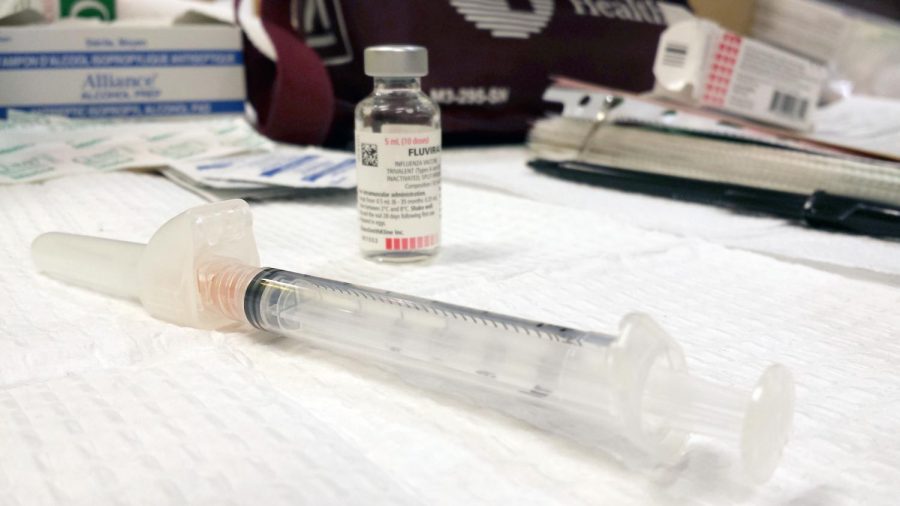The Influence of Politics in Vaccine Race Poses Safety Risks
2020 began with a whirlwind of chaos and confusion, and somehow it seems that after several months of the COVID-19 pandemic, there are still more questions than answers. As the year speeds by and we look to usher in 2021, questions about a possible vaccine for COVID-19 are inundating scientists and researchers alike, as there are multiple factors to consider when mass-producing vaccines that are safe for human use. Time is among the most significant factors, as developing vaccines can take years of close, diligent study to ensure that all groups of people will be safe and suffer no ill-effects of being vaccinated. However, time is being called into question as political leaders and scientists amp up the pressure to develop a vaccine, with President Trump vowing to release a vaccine by the end of the year. It is due to this promise, which raises more questions and concerns for many Americans living in fear of the pandemic, that the race for the vaccine is becoming intertwined with the race for the White House.
President Trump’s unsubstantiated promise of a vaccine by the year’s end or early 2021 is not the most jolting statement made about the vaccine he has made, though it is still quite questionable. Rather, it is his interpretation of the timing in which such a vaccine is to be made available—early November, the same time as the presidential election. To evaluate President Trump’s promise, there are currently 25 vaccines undergoing human trials, with AstraZeneca being the most recent name to elicit headlines, as a human trial developed an unknown inflammatory reaction within their spine as a result of the possible vaccine. This shows that although promises of a possible vaccine can be made, it is not guaranteed that those promises can be kept. As this sobering event shows, the race for a potential vaccine should not be treated as a game that can be won in such a short time. Before political leaders and scientists attempt to solve the mystery of COVID-19, they need to ensure that they have the right questions: How will the vaccine work? Who will it affect more and why? How long will it take to garner the necessary research needed to ensure that the vaccine is not only effective but safe? At the moment, with the president vowing to deliver a vaccine in early November, it seems less likely that he has spent time answering these questions and more time focused on the presidential election.
In the race for a vaccine, these questions need to be the top priority, not that a vaccine is produced conveniently before an election. Scientists have a greater responsibility now more than ever to see this through and ensure that a safe vaccine is delivered unto the American people. However, with rhetoric from political leaders like President Trump, it seems as if the lines between American life and American politics are being dangerously blurred. It is indeed enough of a concern to know that the very identity of what it means to be American is dangling precariously between two political parties. However, to have to grapple with the thought that the politicization of potentially life-saving medicine takes precedence over the goal of saving lives is a horror that no American should have to endure. The road to safety should not intertwine with the road of politics. Scientists and researchers can ensure that such a haunting vision never comes to pass by remaining candid about where they are in the process of synthesizing the vaccine and how much time it will realistically take to produce a vaccine safe for consumption by all Americans. Moreover, they can be transparent about the effectiveness of the vaccine as well as its inadequacies to display to the public that although not perfect, it is effective and can be built upon through further research. All of these tasks must be done while simultaneously avoiding political bias, as reports of pressure from President Trump to rush the vaccine have made recent headlines.
From where we as a nation currently stand, it seems highly improbable that a vaccine that is both effective and safe will be made available to the American public within the year. This is simply because there are still too many questions and not enough answers regarding how the vaccine will change the dynamic of this pandemic in America. President Trump is only exacerbating such confusion by making highly unrealistic promises about vaccine production. By converging politics with the science it takes to save lives, he unnecessarily raises the 2020 election stakes to a new seemingly meteoric high: life or death.
Although many questions about the pandemic still loom, America does have a minimal assortment of answers necessary for survival. Until a vaccine can be guaranteed to be developed safely, candidly, effectively and free of political encroachments, Americans must continue to wear masks and practice social distancing. Where politics divide us as a nation, now more than ever, we need to be able to trust science to unite us.
Noah Osborne, FCRH ’23, is a journalism from Harlem, N.Y.










































































































































































































